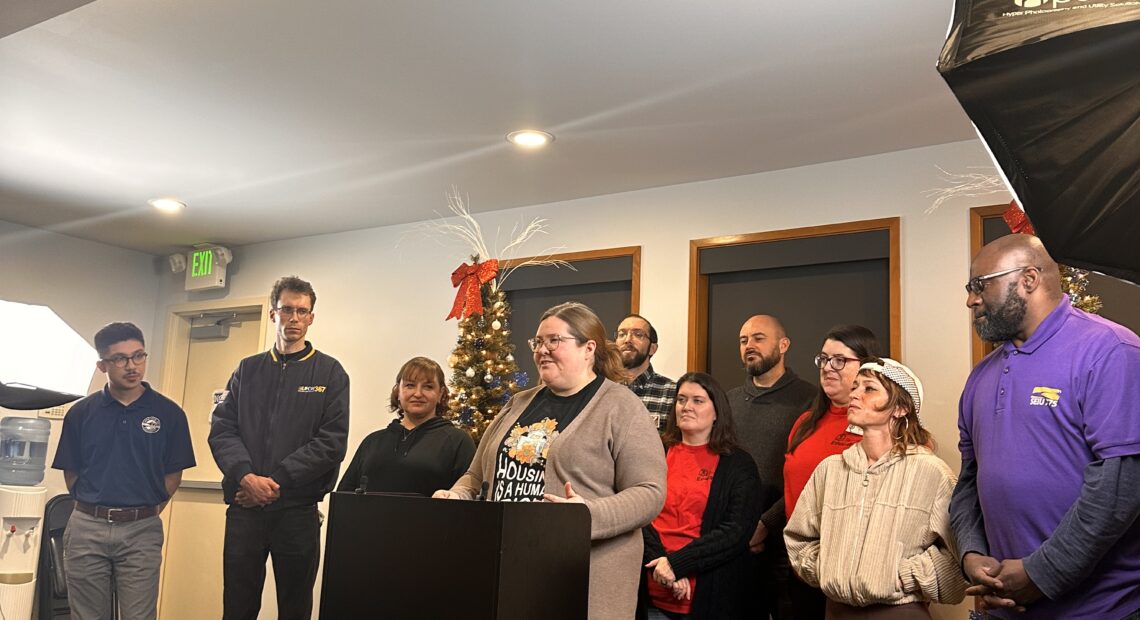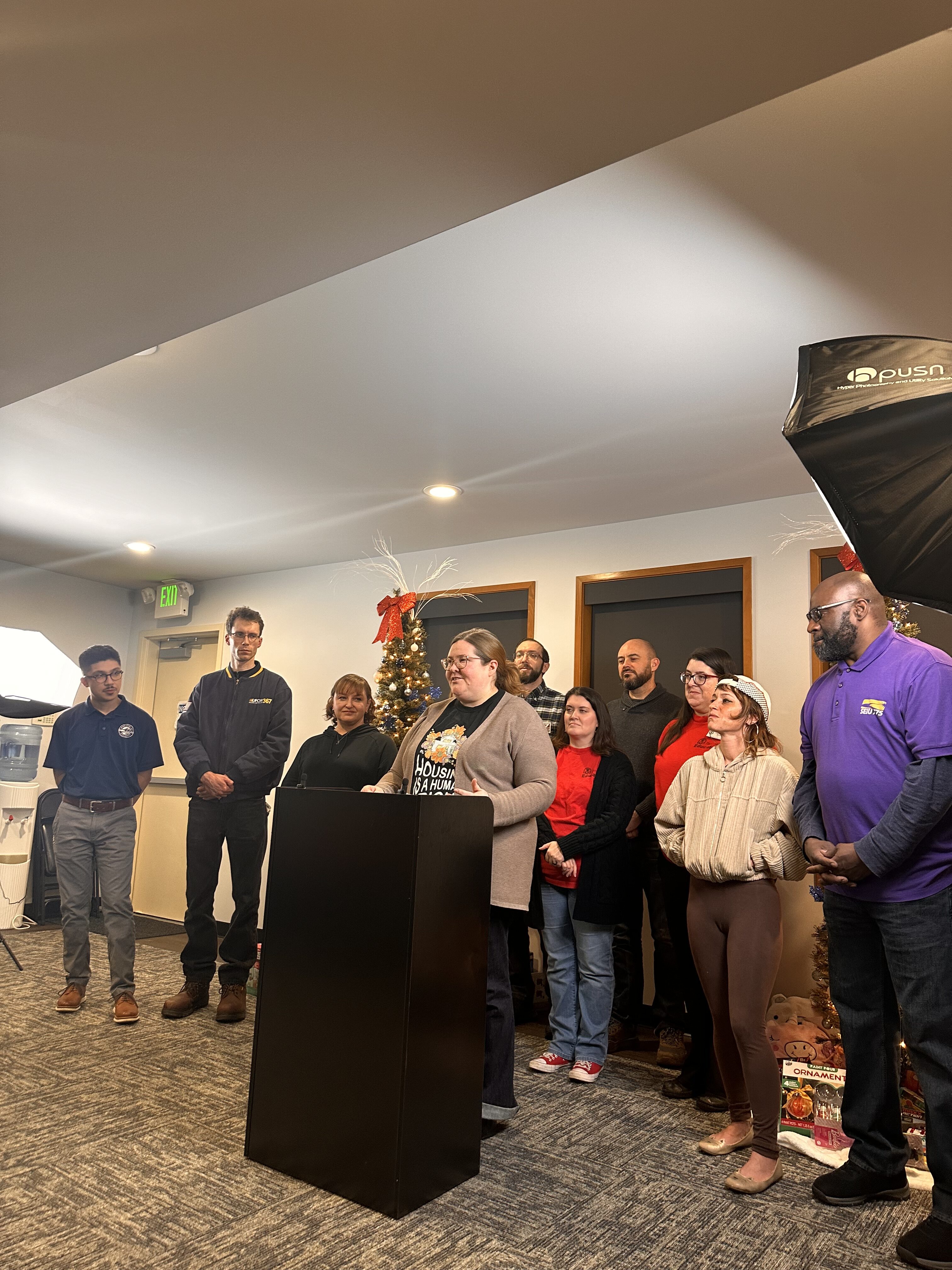
Tacoma’s new tenant protections now in effect
Listen
(Runtime 1:28)
Read
Since Tacoma voters approved a ballot initiative that introduces new regulations called the Landlord Fairness Code to the Tacoma Municipal Code, there have been a lot of questions about the initiative.
The City of Tacoma has answered some questions about the process and what happens next. The Landlord Fairness Code is a city law as of Dec. 8. City Manager Elizabeth Pauli reiterated this in a study session of the city council on Dec. 5.
“If that ordinance faces legal challenge, the law will be defended by the city,” Pauli said.
However, the city has stated that it does not enforce the regulations within the Landlord Fairness Code.
“The Landlord Fairness Code Initiative contains no authorization for administrative enforcement, and its provisions are enforced exclusively by private rights of action. The Rental Housing code is enforced through City administrative processes,” wrote Maria Lee, communications for the city.
Whereas TMC 1.95.090 within the Rental Housing Code provides the administrative enforcement of those regulations, the Landlord Fairness Code allows for enforcement through civil litigation. For example, if a tenant felt their landlord was in violation of one of the regulations, they could take them to court.
What is certain, at this point, is there are plenty of uncertainties. Attorneys for both landlords and for tenants have expressed uncertainty about what will happen next and what sticking points there could be as the law is put into practice.
The first hurdle is making sure people know what the code does and doesn’t do.
“My biggest concern with the initiatives, thus far, is how widely known these rights are by tenants and for landlords, for that matter, as well,” said Mark Morzol, the managing attorney of the Tacoma Pierce County Housing Justice Project.
The city hosted two question and answer sessions for the public on Dec. 4. The recordings of those sessions can be found here. The city’s response to many questions was for landlords to contact their attorneys for further legal clarification.
Joe Harper is a Tacoma attorney who represents landlords. He said his clients are often small-time property owners who are just making enough to pay their expenses.
“What I’m seeing and hearing from people is really just frustration and concern about ‘well, what’s the future going to bring?’” Harper said.
Harper said his clients are concerned about making mortgage payments, property tax payments and the other expenses of owning a home if they have a tenant who isn’t paying rent. The worry is that they can’t evict until months later, given restrictions on evictions during the cold weather months and restrictions on evicting children, their educators and their guardians.
There is an exemption in the new law for landlords to apply for undue hardship that would allow them to evict. Of course, not every landlord who petitions for an exemption will be granted one.
“There is real concern for being able to get somebody out so that you can get a tenant who will be responsible and pay back in,” Harper said.
The extent of the eviction restrictions is somewhat unclear, Morzol said. Whereas Seattle’s winter eviction protection specifies that landlords, the court and sheriff or other enforcing entities can’t enforce an eviction between December and March, the Tacoma measure has a broader definition of eviction — that a landlord cannot terminate a tenancy.
“Whether that broader definition of eviction that Seattle does not have but Tacoma does, prevents more landlord conduct than Seattle does is an open question,” Morzol said. “Our position is that that prevents landlords from even issuing notices to terminate tenancy, notice to vacate during those cold weather months, if they require, to length, the tenant to vacate during those cold weather months.”
Another new renter protection is relocation assistance when landlords are raising the rent over 5%. Harper said he is hearing from landlords who can’t afford to pay relocation expenses, so he said they will work around that by raising rents 4.9%.
“Of course, some of the bigger landlords probably can afford that [relocation assistance] and aren’t going to have too much of an issue with that,” Harper said. “But again, even they’re saying, ‘what about my property taxes and insurance and some of my other maintenance costs?’”
How much is a 5% rent increase?
Using the 2022 Census data, the average monthly rent in Tacoma in July 2022 was $1,489. The per capita income was $41,788. Dividing that per month, the income would be $3,482.33. Rounding that down to $3,482, someone living in Tacoma making the average per capita income and paying the average rent would be paying a little over 42% of their monthly income on rent. Now, if their rent is raised by 5%, rent would rise to $1,563.45 every month. If their income did not change, their monthly rent would now be over 44% of their income.
Morzol said he sees the relocation assistance as huge.
“I know that rising rental rates and rent increases has been a source of concern for a lot of Tacoma residents for a long period of time,” Morzol said.
His response to concerns landlords have about paying expenses?
“It’s always difficult in this kind of legislation to be able to balance the interests of everybody that’s involved,” Morzol said. However, he said he thinks the stipulation that allows landlords to petition for an exemption because of any of the regulations causing undue hardship carves out good protections for landlords, too.
One thing that hasn’t been talked about as much is the restrictions the Landlord Fairness Code puts on fees. A landlord can’t charge move-in fees not expressly provided for in state law. Pet deposits are now capped at 25% of first month’s rent and can’t be nonrefundable. Late fees are capped at $10/month.
















